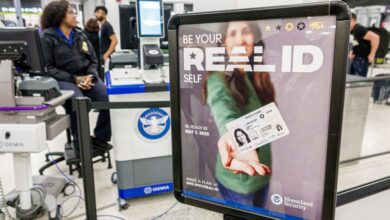The Latest Gen Z Trend: Redefining Work and Wearing Uniforms

Gen Z’s Influence on Workplace Trends
Gen Z, the generation known for its unique approach to life, is now making its mark on the workplace. While traditional values like job stability and work-life balance remain important, the way Gen Z approaches work is evolving. One of the emerging trends is the desire for a “uniform” in the office.
As the oldest Gen Zers enter the workforce at 28 years old, they are prioritizing simplicity and efficiency in their work attire. Amanda Augustine, a career expert at TopResume, notes that many young professionals are adopting a formulaic approach to dressing for work, creating a tried-and-true set of outfit combinations, color palettes, or silhouettes.
After experiencing the flexibility of remote work during the pandemic, Gen Z is seeking ways to streamline their morning routines and reduce decision fatigue. The concept of a self-directed uniform has gained popularity as young workers transition back to the office environment.
Employers are also noticing that Gen Z values comfort and autonomy in the workplace. These employees are opting for hybrid schedules that allow for remote work and prioritize work-life balance. Additionally, Gen Z is looking for ways to simplify their daily routines, including their work attire.
According to Danielle Testa, an assistant professor at the Arizona State University FIDM, Gen Z professionals are gravitating towards brands like Abercrombie & Fitch and Aritzia for their work uniforms. The trend focuses on solid-colored blouses, high-waisted trousers, and outfits in jewel tones, reflecting a balance of professionalism and personal style.
While the concept of a work uniform is not new, Gen Z’s approach to it differs from previous generations. Rather than rigidly adhering to a single outfit, young workers are finding inspiration in simple, versatile pieces that reflect their individual preferences and make getting dressed for work easier.
Redefining Workplace Traditions
As Gen Z navigates the transition to the workplace, their preferences for flexible schedules and remote work are reshaping traditional office norms. A recent survey by ZipRecruiter found that 82% of graduating college students want to work remotely at least one day a week, highlighting the importance of flexibility in the modern workforce.
Employers are facing the challenge of meeting Gen Z’s expectations for work-life balance and autonomy. Despite the push for increased productivity and in-office work, young professionals are advocating for flexible hours and hybrid work models to support their well-being.
Reports from Morning Consult and Monster reveal that Gen Z is prioritizing personal well-being and questioning traditional work structures like the 9-to-5 schedule. The generation’s emphasis on simplicity, comfort, and flexibility is driving a shift towards more adaptive and inclusive work environments.
Embracing Change in the Workplace
As Gen Z continues to shape the future of work, employers must adapt to meet the evolving needs of this generation. By embracing flexibility, autonomy, and individuality, companies can attract and retain top Gen Z talent in a competitive job market.
Creating a work culture that values well-being, work-life balance, and personal growth is crucial for engaging and motivating Gen Z employees. By embracing the changing landscape of work and incorporating elements of self-expression and comfort, organizations can foster a more inclusive and dynamic workplace environment.





